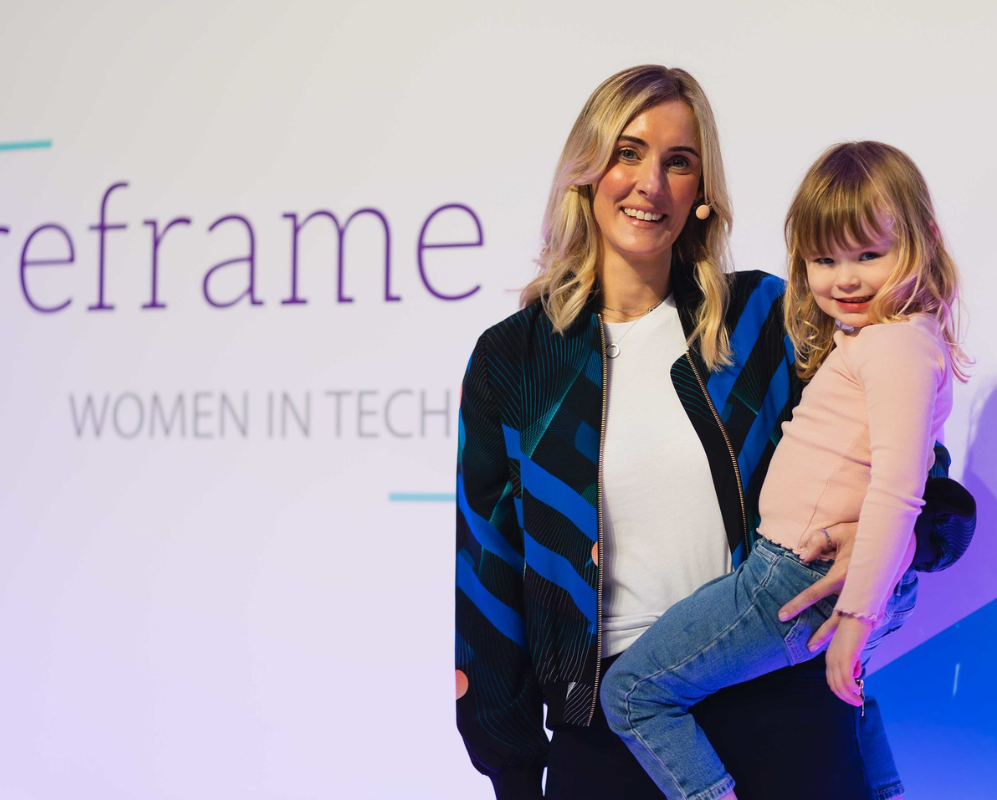Recently I spotted an article with the headline ‘ half of women in tech drop out by age 35’ and I found myself thinking ‘That’s not news’ and then I was followed by the thought of how utterly depressing it was, that it wasn’t news, it has continued to be the norm.
We know the stats, the tech industry has long been dominated by men, let’s face it, it still is, but there are plenty of organisations and people out there seeking to address the barriers that women face in entering and staying in the tech industry, according to a collaborative report by Code First Girls and Tech Talent Charter (TTC) two fantastic organisations doing great work in this space, half of women in tech drop out by the age of 35, exacerbating concerns about the growing digital skills shortage and the gender gap
But why does the gap exist? For those it has never affected it can be hard to understand, but I’d hazard a guess that most people reading this article right now have been affected by all or one of the key findings around barriers.
Double standards and family life balance, particularly around parental leave and family life balance, the report highlights the need for enhanced parental leave policies to enhance women in their career progression, making it possible for women to feel they can take a career break without there being a detriment to finances, long term career or general standard of life and without feeling that there is always a compromise to be made. We need to give parents the confidence to take equal roles when it comes to careers and family, it shouldn’t just be about the women, if we are able to empower both parents to take career breaks and to support them in all areas of that break, we will see many more women return to and stay in tech – we will see equality in action.
Lack of flexibility, Flexible working policies play a crucial role in attracting and retaining talent, particularly for women. Offering job flexibility upfront in job ads has been shown to increase the volume of applicants, including a higher proportion of female applicants., so shouldn’t this be the standard for almost every role? – we all see the job advertisements offering flexibility as some sort of benefit when this should absolutely be the norm, the evidence is there, we all worked in a much more flexible manner throughout a global pandemic, it isn’t a nice to have, it’s essential and possible to work in a way that focuses on outcomes and not hours at a desk. We also need to understand that flexibility means different things to different people and it’s crucial that we understand what this means for our teams to ensure their effectiveness.
Reproductive healthcare: The report also highlights the importance of reproductive healthcare policies in supporting women in the tech industry. Benefits for infertility disease, menstrual health, and menopause can play a significant role in ensuring that women feel supported and empowered in their careers and the importance of educating everyone in the business, these are not just issues for women and should not just be dealt with by women.
We need Action Not Words
As the report shows, the barriers that face women in tech are very real and can be career crippling, when these barriers force women to leave their careers, it can then be incredibly difficult to return and when and if that return finally happens those barriers are all too often still there. This is something I experienced firsthand, taking what might be considered a short career break (although it was no break!) on maternity leave following the birth of my first child, returning to work proved more difficult than I ever anticipated. It led me to create peer groups and ultimately a business which sought to tackle those barriers head-on.
Tech Returners was formed in 2017 with the goal to address underrepresentation in tech and to help individuals who had taken a career break to return to the industry. Since then 218 individuals have completed the Tech Returners programme with 53% of those women and in 2022 alone the Tech Returners programme generated salaries totalling £2.5 million.
Most importantly 92% reported an increase in confidence as a result of completing the programme and it is this impact which leads me to where I am today, striving for continuous change in the industry and for Action, Not Words.
This is the theme for the upcoming Reframe Women in Tech Conference taking place in London this September and whilst you can learn more about the event itself by visiting the links at the end of this blog, one thing which we are striving to achieve is to ensure that the community that engages with our event is taking action. We know about the barriers facing women in tech and we know we need to address them, we also know we can’t do that through writing blogs or posting on social media alone. Those things are great for bringing these barriers to the forefront (again) for serving as a purposeful reminder that they still exist but only through action can we create true change.
So I will leave you with some actions of your own
- Read the report
- Think about one action you can take now to address just one of the barriers in that report facing women in tech
- Ask yourself how you will take that action forward to become a reality.
- Share your pledge in the comments or with us on social media. I’d love to know what action you are taking.


